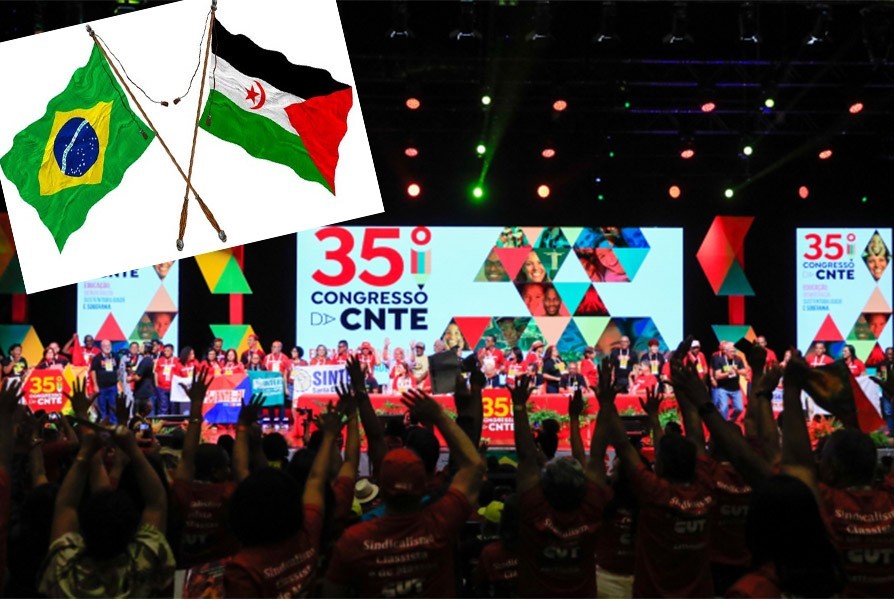![Bernd Lange, chair of the Parliament's trade comittee (INTA). [© European Union 2025]](/sites/default/files/2025-10/bern_lange.jpg)
Brussels (European Parliament) 06 October 2025 (SPS)- Bernd Lange, Chair of the European Parliament’s Committee on International Trade (INTA), strongly denounced the Commission’s handling of EU-Morocco agreement that includes the products and territory of the occupied Western Sahara, calling it “a truly outrageous way of operating”, reported the independent Pan-European media network EURACTIV, specialized in EU affairs.
“The ruling of the court has been known for a year, and yet the Commission was apparently either unable or unwilling to sort things out through a proper procedure,” the German MEP said in his statement to Euractiv.
A growing institutional dispute has emerged in Brussels following the European Commission’s decision to fast-track an amended trade agreement with Morocco, which includes products originating from the occupied territory of Western Sahara.
Other Members of the European Parliament (MEPs) have accused the Commission of bypassing parliamentary oversight and disregarding a landmark ruling by the Court of Justice of the European Union (CJEU).
The revised trade arrangement, which covers agricultural and fisheries products “at preferential tariff rates,” aims to bypass the 2021 CJEU ruling that annulled the previous EU–Morocco deal for failing to secure the consent of the Sahrawi people, the rightful inhabitants of Western Sahara, but also for failing to rightly label the Products originating from Western Sahara.
However, critics within the European Parliament argue that the Commission’s approach undermines both the Court’s decision and the Parliament’s authority.
“The ruling of the court has been known for a year, and yet the Commission was apparently either unable or unwilling to sort things out through a proper procedure,” Lange stated. “Despite having just improved our framework with the Commission to prevent this kind of situation, they’ve gone ahead and done exactly that.”
According to parliamentary sources, MEPs were only notified of the Commission’s move on 26 September, mere days before the Council approved the deal’s provisional application on 3 October. The proposal was published online the following week, sparking outrage among lawmakers who say the Commission acted in breach of an interinstitutional agreement that prohibits provisional application of trade deals without Parliament’s prior consent.
Spanish MEP Vicent Marzà (Greens/EFA), a member of the delegation for relations with Maghreb countries, also criticized the Commission’s lack of transparency.
“[The Commission] was not only not talking to Parliament; it was denying information that must be given to the representatives, like me,” Marzà said, describing the situation as an unprecedented “level of obscurity.”
The European Parliament’s trade committee is scheduled to hold an extraordinary session in Strasbourg this evening to discuss the matter. Lange confirmed that he intends to raise the issue again during Tuesday’s meeting between committee chairs and Commission officials.
The controversy underscores a widening institutional rift over the EU’s handling of trade relations with Morocco, particularly as they pertain to the inclusion of Western Sahara, a non-self-governing territory pending a decolonization process since 1963.
Euractiv finally indicated that at the time of publication, the European Commission had not responded to requests for comment, a stance that reveals much about the lack of transparency of the Commission on the matter.
POLISARIO Front official reacted last Friday 3rd evening strongly condemning the new agreement concluded between the Council of the European Union and the Kingdom of Morocco, which extends tariff preferences to products originating from the occupied Western Sahara.
The statement, a copy of which was published by the SPS, stressed that this agreement, intended to replace the 2018 deal annulled by explicit rulings of the Court of Justice of the European Union, constitutes a blatant violation of international law and a direct breach of judicial decisions concerning the occupied territory.
It further recalled that, as early as 2016, the European Court of Justice had ruled that Western Sahara is a territory separate and distinct from Morocco, requiring the consent of the Sahrawi people for any agreement affecting it. This principle was reaffirmed in the October 2024 rulings, which explicitly recognized the POLISARIO Front’s capacity to represent the Sahrawi people and defend their sovereign rights before the European courts.
On the basis of these well-established legal principles, the POLISARIO Front reaffirmed that the new agreement is unlawful and declared its resolve to use all appropriate legal means to challenge it and to safeguard the rights and resources of the Sahrawi people. (SPS)
090/500/60 (SPS)



